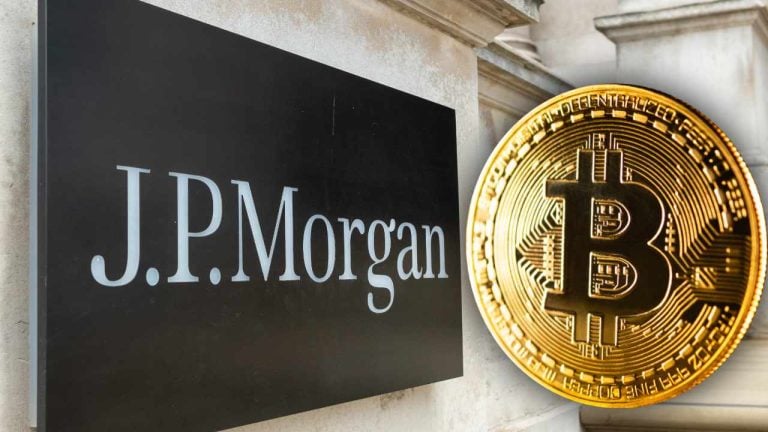
JPMorgan analysts have cautioned that despite recent legal defeats by the Securities and Exchange Commission (SEC) against crypto firms, there is unlikely to be a significant easing of U.S. crypto regulations. The analysts highlighted the lack of regulation in the industry as a reason for continued regulatory tightening.
JPMorgan Sees Continued Crypto Regulatory Tightening
In a recent note, JPMorgan analysts stated that cryptocurrency regulations in the U.S. are unlikely to ease, even after the SEC's losses in legal battles against crypto firms. The analysts pointed out that the approval of spot bitcoin exchange-traded funds (ETFs) by the SEC, which many in the crypto space anticipate, does not indicate a complete shift in regulatory stance towards the industry. They referenced two legal cases where the courts ruled in favor of Ripple Labs and Grayscale Investments against the SEC, but emphasized that this does not necessarily indicate a significant reduction in regulatory tightening. The analysts stated:
"While this year's Ripple vs SEC and Grayscale vs SEC court rulings represent legal defeats for the SEC, it is far from clear that the regulatory tightening of the crypto industry will lessen significantly going forward given how unregulated this industry is."
The analysts further highlighted that the memories of the FTX fraud are still fresh, and they do not believe that U.S. lawmakers would shift their stance based solely on the outcomes of the aforementioned legal cases. They emphasized that crypto regulations in the U.S. are still pending and subject to further developments.
In addition, the JPMorgan analysts expressed skepticism towards the recent rally in BTC, stating that it may be "rather overdone." They believe that factors driving the bullishness, such as the expected approval of spot bitcoin ETFs by the SEC and the halving, may have limited impact on bitcoin's price.
While many expect spot bitcoin ETFs to attract traditional investors and drive demand for BTC, JPMorgan analysts remain unconvinced. They believe that these ETFs will primarily draw investment from existing bitcoin products, including Grayscale's bitcoin trust (GBTC), upcoming ETFs, and bitcoin mining firms. The analysts view this shift as a relative value trade, considering that some of these bitcoin products currently trade at a premium or reduced discount compared to the past.
SEC Chairman Gary Gensler recently revealed that the regulator is reviewing between eight and 10 spot bitcoin ETF applications. JPMorgan previously stated that it expects the SEC to approve multiple spot bitcoin ETFs simultaneously. Meanwhile, Michael Saylor, chairman of Microstrategy and a prominent bitcoin advocate, has predicted that the demand for BTC will double following the halving and the approval of spot bitcoin ETFs.
What are your thoughts on JPMorgan's bitcoin outlook? Do you believe that U.S. crypto regulations will ease following the SEC's losses against Ripple and Grayscale? Share your opinions in the comments section below.
Frequently Asked Questions
What precious metals are permitted in an IRA
Gold is the most widely used precious metal for IRA account accounts. Investments in gold bullion coins or bars can be made as well.
Precious metals can be considered safe investments as they don't lose their value over time. They're also considered a great way to diversify an investment portfolio.
Precious metallics include platinum, silver and palladium. These three metals have similar properties. Each metal has its own unique uses.
Platinum is used to make jewelry, for example. The catalysts are made from palladium. For producing coins, silver is used.
Think about how much you can afford to purchase your gold, before you make a decision on the precious metal. It may be more cost-effective to purchase gold at lower prices per ounce.
You need to decide if you want your investment to remain private. If you do, you should choose palladium.
Palladium can be more valuable than gold. However, it is also rarer. This means you might have to spend more.
Their storage fees are another important factor to consider when choosing between sterling and gold. The weight of gold is what you store. The price for larger amounts will go up.
Silver is stored according to its volume. You'll pay less if you store smaller quantities of silver.
Follow all IRS rules regarding silver and gold if you are storing precious metals within an IRA. This includes keeping track of transactions and reporting them to the IRS.
Are gold IRAs a good place to invest?
The best way to invest in gold is by buying shares in companies that mine for it. You should buy shares in these companies to make money from investing in gold and other precious metals such as silver.
The downside to owning shares is that you can't directly control them.
If you hold on to your stock for too much time, you risk losing money. When stocks decline, they fall further than their underlying asset (like gold). This means that you might end up losing more money than you make.
Second, waiting for the market to recover before selling your gold holdings could result in you missing out on potential profits. It is possible to wait until the market recovers before selling your gold.
If you prefer to keep your investments apart from your finances, physical gold is still an option. A gold IRA can help you diversify your portfolio, and protect against inflation.
You can find out more information about gold investing on our website.
Should you open a Precious Metal IRA
The answer depends on whether you have an investment goal and how much risk tolerance you are willing to take.
Register now if you want to save money for retirement.
Because precious metals are highly likely to appreciate over time, They offer diversification advantages.
The prices of silver and gold tend to be linked. They make a good choice for both assets and are a better investment.
If you're not planning on using your money for retirement or don't want to take any risks, you probably shouldn't invest in precious metal IRAs.
Statistics
- To qualify as IRA allowable precious metals and be accepted by STRATA, the following minimum fineness requirements must be met: Gold must be 99.5% pure, silver must be 99.9% pure, and platinum and palladium must both be 99.95% pure. (stratatrust.com)
- SEP-IRA”Simplified employee pension” For self-employed people like independent contractors, freelancers, and small-business ownersSame tax rules as traditional IRASEP IRA contributions in 2022 are limited to 25% of compensation or $66,000, whichever is less4. (sltrib.com)
- You can only purchase gold bars of at least 99.5% purity. (forbes.com)
- The IRS also allows American Eagle coins, even though they do not meet gold's 99.5% purity standard. (forbes.com)
External Links
takemetothesite.com
wsj.com
en.wikipedia.org
regalassets.com
How To
How to Decide if a Gold IRA ‘Is Right For You'
Individual Retirement accounts (IRAs) are the most common type of retirement account. IRAs can be obtained through banks, financial advisors, mutual funds, employers and banks. The IRS allows individuals up to $5,000 in annual contributions without tax consequences. This amount can be deposited into any IRA, regardless your age. However, certain IRAs have limits on the amount you can deposit. You cannot contribute to a Roth IRA if you are under 59 1/2 years of age. If you're under 50, you must wait until you reach age 70 1/2 before making contributions. Some people may also be eligible for matching contributions if they work for their employer.
There are two types of IRAs available: Roth and traditional. Traditional IRAs let you invest in stocks, bonds, and other investments. Roth IRAs only allow you to make after-tax money. Roth IRA contributions can be made without tax, but they will still be subject to taxes if you withdraw from it. Some people prefer to combine these two accounts. Each type of IRA comes with its own pros and cons. Before you decide which type of IRA is right for you, what are the pros and cons? These are the three main things you need to remember:
Traditional IRA Pros
- The company can choose from different contribution options
- Employer match possible
- Can save more than $5,000 per person
- Tax-deferred Growth until Withdrawal
- May have restrictions based on income level
- Maximum contribution limit for married couples is $5500 annually ($6,500 jointly).
- Minimum investment is $1,000
- After the age of 70 1/2, mandatory distributions must be taken.
- You must be at the least five years of age to open an IRA
- Cannot transfer assets between IRAs
Roth IRA pros
- Contributions are free of taxes
- Earnings increase tax-free
- No minimum distribution required
- Only stocks, bonds, mutual funds are available as investment options.
- There is no maximum contribution limit
- There are no restrictions on the transfer of assets between IRAs
- You must be at least 55 to open an IRA
Considering opening a new IRA, it's essential to know that not all companies offer the same IRAs. Some companies allow you to choose between a Roth IRA or a traditional IRA. Others allow you to combine them. There are different requirements for different types. Roth IRAs do not require a minimum amount of investment, while traditional IRAs are limited to a maximum investment of $1,000.
The Bottom Line
It is important to decide whether you want taxes now or later when you choose an IRA. If you plan to retire in the next ten years, a traditional IRA might be the best choice. A Roth IRA might be better suited to you. However, it's always a good idea for you to talk with a professional regarding your retirement plans. An expert can advise you on the best options and how to navigate the market.
—————————————————————————————————————————————————————————————-
Based on [POSTTITLE]
by [POSTAUTHOR]

















